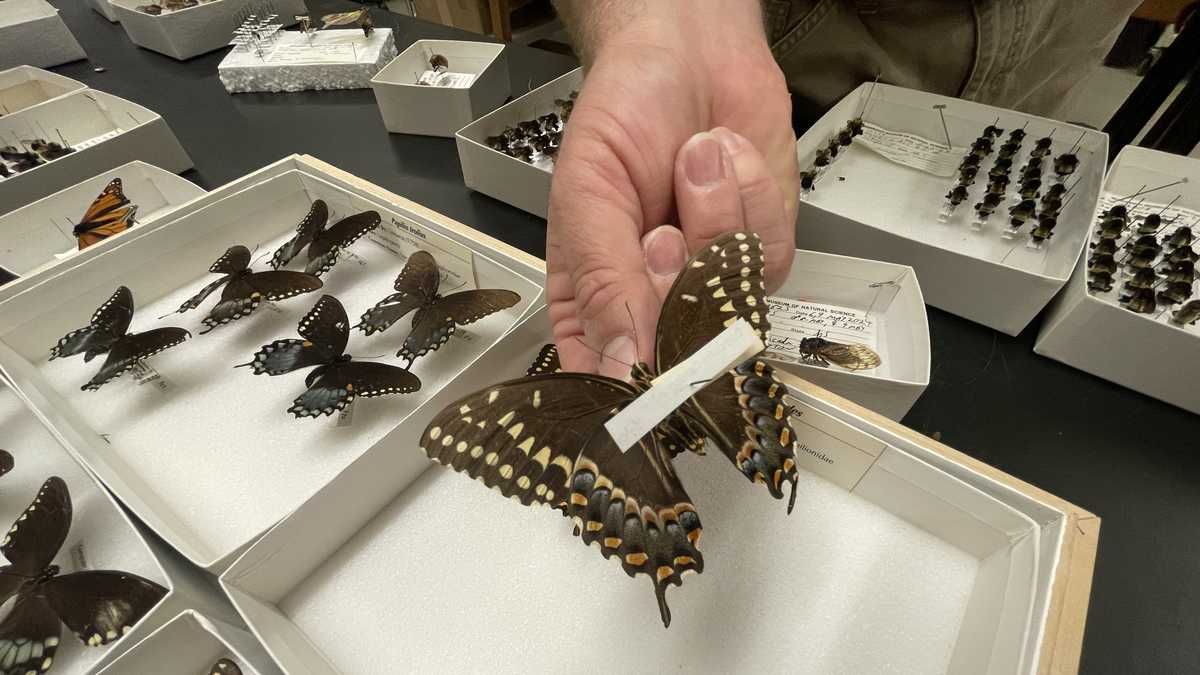Climate change threatens butterfly habitats, warns Mississippi ecologist
An expert says butterflies are facing major habitat loss because of global climate change.”We are a part of this tower of Jenga blocks, but every piece of the tower that you move, every piece of the environment that you move is like one of those Jenga blocks being pulled out of the tower. The question is, how many of those blocks can you remove before the tower crumbles?” said Brady Dunaway, a Heritage Program ecologist in Jackson.One of those Jenga pieces Dunaway referred to is the butterfly species. Scientific experts say global climate change may have a devastating impact on butterfly populations across the country. Dunaway, who works for the Mississippi Department of Wildlife and Fisheries, said butterflies call host plants their home and are where they lay their eggs, but more extreme weather conditions are causing many of their host plants to die. Dunaway said when their host plants die off, the butterflies start to die off, as well.”Whenever you lose habitat, you lose these communities of plants, and many of times, when you lose plants that they lay their eggs on, you completely lose the butterfly, and we have seen that before,” said Dunaway. “You have butterflies that live in low elevation areas, and you have butterflies that live in high elevation areas that are more dramatically susceptible or in danger because of climate change. You get sea level rise, but the more immediate danger (is) storms, like a hurricane that pushes salt water into the coast, and the saltwater kills plants that can’t tolerate the salt.”Dunaway said most butterfly species in Mississippi are doing fine, but one species he says experts are concerned about is the Hessel’s hairstreak. Its’ host tree is an Atlantic white seeder, which is dying due to coastal development.
An expert says butterflies are facing major habitat loss because of global climate change.
“We are a part of this tower of Jenga blocks, but every piece of the tower that you move, every piece of the environment that you move is like one of those Jenga blocks being pulled out of the tower. The question is, how many of those blocks can you remove before the tower crumbles?” said Brady Dunaway, a Heritage Program ecologist in Jackson.
One of those Jenga pieces Dunaway referred to is the butterfly species. Scientific experts say global climate change may have a devastating impact on butterfly populations across the country.
Dunaway, who works for the Mississippi Department of Wildlife and Fisheries, said butterflies call host plants their home and are where they lay their eggs, but more extreme weather conditions are causing many of their host plants to die. Dunaway said when their host plants die off, the butterflies start to die off, as well.
“Whenever you lose habitat, you lose these communities of plants, and many of times, when you lose plants that they lay their eggs on, you completely lose the butterfly, and we have seen that before,” said Dunaway. “You have butterflies that live in low elevation areas, and you have butterflies that live in high elevation areas that are more dramatically susceptible or in danger because of climate change. You get sea level rise, but the more immediate danger (is) storms, like a hurricane that pushes salt water into the coast, and the saltwater kills plants that can’t tolerate the salt.”
Dunaway said most butterfly species in Mississippi are doing fine, but one species he says experts are concerned about is the Hessel’s hairstreak.
Its’ host tree is an Atlantic white seeder, which is dying due to coastal development.

